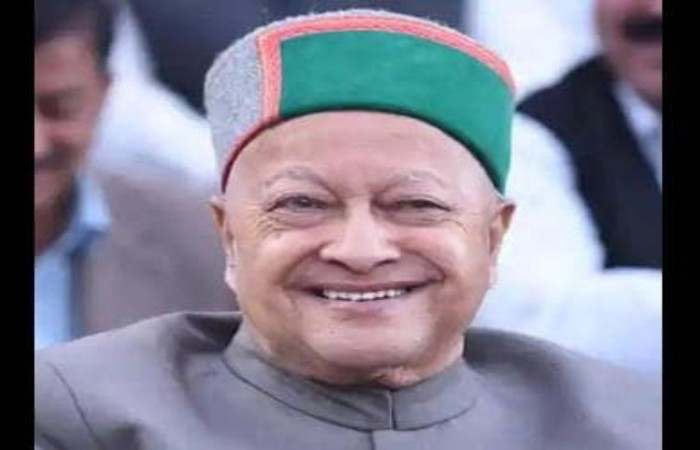New Delhi, July 08:
A scion of the Rampur-Bushahr royal family, Virbhadra Singh or Raja Sahib as he was popularly known, didn’t rule a kingdom, but the hearts of the people of Himachal Pradesh for more than five decades. The six-time chief minister, nine-time state legislator and five-time member of Parliament, passed away at Indira Gandhi Medical College and Hospital in Shimla at 3:30 am on Thursday.
Part of the older generation of the Congress, not just in the state but across the country, he began his political career at 27 with the Lok Sabha elections in 1962. He went on to serve as a member of Parliament for four more terms, though not successive, in 1967, 1971, 1980 and 2009.
Seasoned at Centre, back to state
His first stint as chief minister of the state was in 1983 and lasted till 1990 when he was succeeded by Shanta Kumar of the BJP. In 1983, the Congress high command was considering a change of guard in Himachal Pradesh as the government helmed by Ram Lal Thakur was in the eye of a storm for sheltering the forest mafia.
Seasoned in central politics, Virbhadra took charge of the state and played a proactive role in building education and health infrastructure besides developing tourism.
Such was his popularity that he was re-elected chief minister in 1985, 1993, 2003 and 2012. He also won the Lok Sabha election in 2009 and served as Union minister of steel and later as minister of micro, small and medium enterprises.
Fighting battles, winning wars
Virbhadra survived nearly every curve ball thrown his way, including corruption charges and waning influence within the party. He fought off threats by many a party rival.
In the early ’90s, Congress veteran Sukh Ram posed a formidable challenge. The Congress had won 52 of the 68 assembly seats in 1993. Sukh Ram, who was close to then Prime Minister Narasimha Rao was keen to become the chief minister. Sukh Ram had the support of 22 legislators but Virbhadra, known for his political acumen, secured the backing of 29 legislators along with five independent MLAs to stake claim to power, forcing the then Punjab chief minister, Beant Singh, who was sent as an observer by the high command, to do a rethink. Virbhadra regained a foothold after Sukh Ram’s name cropped up in the telecom scam.
In 1998, Sukh Ram again threw the gauntlet at Virbhadra after floating the Himachal Vikas Congress that won five seats and helped the BJP wrest control under Prem Kumar Dhumal on March 24. The Virbhadra Singh government resigned following the withdrawal of support by the lone independent MLA, Ramesh Chand Choudhary. Then governor VS Rama Devi asked Virbhadra to prove his majority on the floor of the House within 10 days. The assembly election, held along with the Lok Sabha poll, threw up a hung House.
Virbhadra, who was Union minister in the Manmohan Singh-led UPA-2 government quit after a Himachal court framed corruption charges against him. However, his popularity again forced the party high command to send him back to state and he replaced Kaul Singh Thakur as the state Congress chief and steered the party to victory in the 2012 assembly elections.
Senior Congress leader Vidya Stokes and Thakur did challenge his authority but could not stand their ground. Even former state party chief Sukhvinder Singh Sukhu tried to pose a challenge but eventually, Virbhadra prevailed.
Unmatched popularity
None of the state leaders from his party or the rival BJP were a match to Virbhadra’s popularity and public connect. Affectionate, he listened to people with compassion. “Meri janata meri sabsay badhi takat hai (People are my biggest strength),” he would say in his speeches.
Such was his public appeal that he would never campaign in his own constituency after filing his nomination papers yet he would win comfortably. His trusted lieutenants managed his constituency, while he would tour the state, leading the Congress campaign.
Personal journey and legacy
Born on June 23, 1934, Virbhadra was educated at Colonel Brown Cambridge School, Dehradun, St Edward’s School, Shimla, and Bishop Cotton School, Shimla, before he graduated in English honours from St Stephen’s College, Delhi.
He was married to Ratna Kumari in 1954 and had four daughters.
He remarried in 85 and his wife, Pratibha Singh, went on to represent Mandi parliamentary constituency. Their son, Vikramaditya Singh, is the MLA from Shimla Rural, and daughter Aparajita is married to Angad Singh, the grandson of Punjab chief minister Capt Amarinder Singh.




